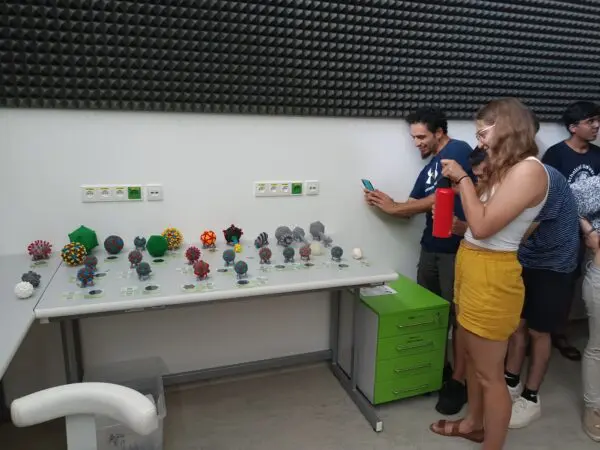
Messina, Italy
The Second International Summer School on the Study of Extreme Environments through Integrated Approaches (ISS-SEEA)
When:
22 September - 25 September 2025
Credits:
0 EC
Read more
Natural Sciences
When:
15 July - 27 August 2018
School:
University of Bern Winter and Summer Schools
Institution:
University of Bern
City:
Country:
Language:
English
Credits:
2.5 EC
Fee:
600 CHF

Frontier research in the field of electrosynthesis which includes CO2 conversion, ammonia synthesis, organic electrosynthesis, and water splitting.
The so-called Energy Transition denotes the fundamental change of the current energy use that is still based to a large extend on fossil and nuclear sources toward “renewables” such as solar, hydro and wind power. A major technological challenge in context of this paradigm shift is related to the highly discontinuous production of electricity in particular from wind and solar sources thus causing tremendous stability issues to the entire power supply system (grid). Therefore various energy storage/conversion technologies are currently being developed which are intended to stabilize the grid by buffering the surplus of such “renewable” electricity as well as to enable more delocalized energy schemes. Various electrosynthesis approaches are currently considered as promising alternatives/supplements to the classical battery approaches, which have limited capacity. The basic idea behind these schemes is not only the (temporary) storage of electricity in form of added-value chemicals, e.g. high energy density fuels, but also a new paradigm to produce chemical feedstock from abundant resources (power-to-X approach).
Speakers
• Prof. Javier Pérez-Ramírez (ETHZ, Switzerland)
• Prof. Yang Shao-Horn (MIT, USA)
• Prof. Ib Chorkendorff (DTU, Denmark)
• Prof. Sigfried Waldvogel (University of Mainz, Germany)
• Prof. Thomas Wirth (University of Cardiff, UK)
• Dr. Günter Schmidt (Siemens, Germany)
• Dr. Daniel Egger (Climeworks, Switzerland)
• Prof. Hans Geerlings (Shell Technology Centre, Netherlands)
• Prof. Soma Vestergom (University of Budapest, Hungary)
• Prof. Simon Thiele (University of Erlangen, Germany)
Organizing Institution • University of Bern • Paul Scherrer Institut, Villigen / Swiss Competence Center for Energy Research (SCCER) Heat and Electricity Storage Organizing committee (Course leader) • Prof. Dr. Matthias Arenz, University of Bern,
PhD students, Post-doctoral associates and industrial researchers. Participants are encouraged to present a poster of their research. There will be ample opportunity for discussion between participants and speakers.
This International Summer School aims at providing an overview about the status quo in the current electrosynthesis research relevant to this energy transition. Possible starting materials of this (catalytic) electrosynthesis approaches might be, but are not restricted to, CO2, N2, H2O and even more complex organic reactants. Not only fundamentals of these electroconversion processes shall be discussed but also concepts how to implement them into current and future industrial applications. For this purpose internationally renowned researchers from academia as well as industry present their work. During the whole Summer School there will be plenty of room for exchange and discussions.
Fee
600 CHF, Fee: between CHF 600.00 and CHF 1’500.00 (depends on host university/employer). See details on official website 600 CHF for students and collaborators from the universities of Bern and Zürich (members of the PhD program). The registration fee includes full board accommodation, conference dinner, and teaching material.
Fee
1500 CHF, Participants from industry.
When:
15 July - 27 August 2018
School:
University of Bern Winter and Summer Schools
Institution:
University of Bern
Language:
English
Credits:
2.5 EC

Messina, Italy
When:
22 September - 25 September 2025
Credits:
0 EC
Read more

Jyväskylä, Finland
When:
04 August - 08 August 2025
Credits:
2 EC
Read more

Brno, Czechia
When:
13 July - 26 July 2025
Credits:
4 EC
Read more